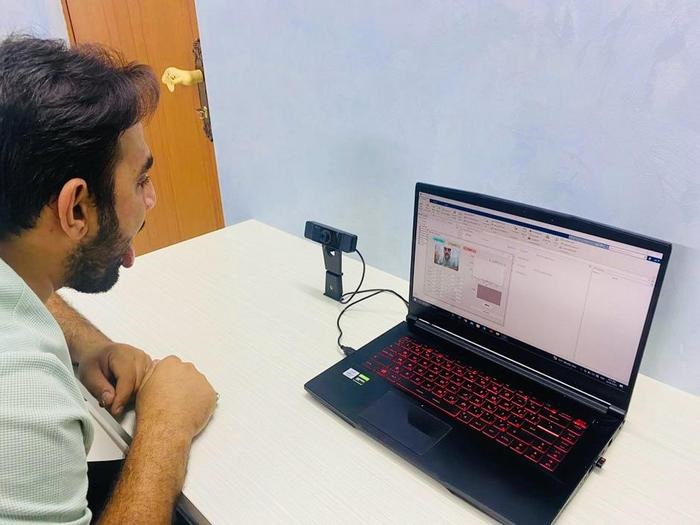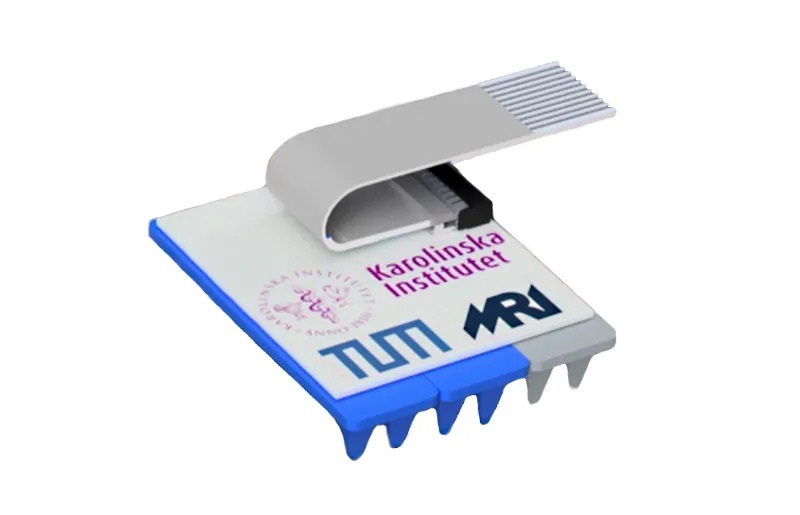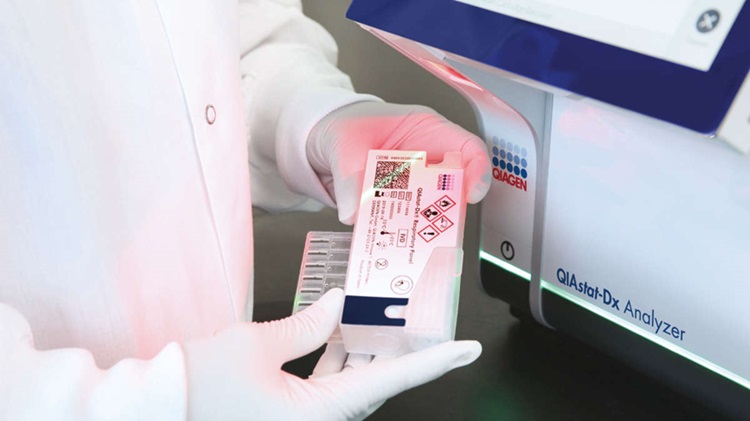Novel 3D Printing Technique Installs NIV Sensors in Lab-on-a Chip Devices
|
By LabMedica International staff writers Posted on 04 Nov 2016 |
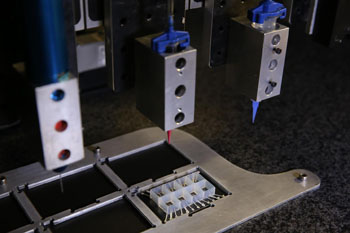
Image: The heart-on-a-chip is made entirely using multi-material three-dimensional printing (3D) in a single automated procedure, integrating six custom printing inks at micrometer resolution (Photo courtesy of Johan Lind, Disease Biophysics Group, and Lori K. Sanders, Lewis Laboratory, Harvard University).
A team of biomedical engineers developed an advanced three-dimensional (3D) printing technique to embed noninvasive strain sensors into living tissue as an integral component of organ-on-a-chip devices.
Microphysiological systems (MPS), also known as organs-on-chips, that recapitulate the structure and function of native tissues in vitro, have emerged as a promising alternative to the use of animals in biomedical investigations. However, current MPS typically lack integrated sensors and their fabrication requires complex and expensive multi-step lithographic processes.
Investigators at Harvard University (Cambridge, MA, USA) recently described a method for fabricating a new class of instrumented cardiac microphysiological devices via multimaterial three-dimensional printing. Specifically, they designed six functional inks, based on piezo-resistive, high-conductance, and biocompatible soft materials that enabled integration of soft strain gauge sensors within micro-architectures that guided the self-assembly of laminar cardiac tissues.
As described in the October 24, 2016, online edition of the journal Nature Materials, the chips contained multiple wells, each with separate tissues and integrated sensors, allowing investigators to study many engineered cardiac tissues at once.
The investigators validated that the embedded sensors provided non-invasive, electronic readouts of tissue contractile stresses inside cell incubator environments. They further applied these devices to study drug responses, as well as the contractile development of human stem cell-derived laminar cardiac tissues over four weeks.
"Our microfabrication approach opens new avenues for in vitro tissue engineering, toxicology, and drug screening research," said senior author Dr. Kit Parker, professor of bioengineering and applied physics at Harvard University. "Translating microphysiological devices into truly valuable platforms for studying human health and disease requires that we address both data acquisition and manufacturing of our devices. This work offers new potential solutions to both of these central challenges."
Related Links:
Harvard University
Microphysiological systems (MPS), also known as organs-on-chips, that recapitulate the structure and function of native tissues in vitro, have emerged as a promising alternative to the use of animals in biomedical investigations. However, current MPS typically lack integrated sensors and their fabrication requires complex and expensive multi-step lithographic processes.
Investigators at Harvard University (Cambridge, MA, USA) recently described a method for fabricating a new class of instrumented cardiac microphysiological devices via multimaterial three-dimensional printing. Specifically, they designed six functional inks, based on piezo-resistive, high-conductance, and biocompatible soft materials that enabled integration of soft strain gauge sensors within micro-architectures that guided the self-assembly of laminar cardiac tissues.
As described in the October 24, 2016, online edition of the journal Nature Materials, the chips contained multiple wells, each with separate tissues and integrated sensors, allowing investigators to study many engineered cardiac tissues at once.
The investigators validated that the embedded sensors provided non-invasive, electronic readouts of tissue contractile stresses inside cell incubator environments. They further applied these devices to study drug responses, as well as the contractile development of human stem cell-derived laminar cardiac tissues over four weeks.
"Our microfabrication approach opens new avenues for in vitro tissue engineering, toxicology, and drug screening research," said senior author Dr. Kit Parker, professor of bioengineering and applied physics at Harvard University. "Translating microphysiological devices into truly valuable platforms for studying human health and disease requires that we address both data acquisition and manufacturing of our devices. This work offers new potential solutions to both of these central challenges."
Related Links:
Harvard University
Latest BioResearch News
- Genome Analysis Predicts Likelihood of Neurodisability in Oxygen-Deprived Newborns
- Gene Panel Predicts Disease Progession for Patients with B-cell Lymphoma
- New Method Simplifies Preparation of Tumor Genomic DNA Libraries
- New Tool Developed for Diagnosis of Chronic HBV Infection
- Panel of Genetic Loci Accurately Predicts Risk of Developing Gout
- Disrupted TGFB Signaling Linked to Increased Cancer-Related Bacteria
- Gene Fusion Protein Proposed as Prostate Cancer Biomarker
- NIV Test to Diagnose and Monitor Vascular Complications in Diabetes
- Semen Exosome MicroRNA Proves Biomarker for Prostate Cancer
- Genetic Loci Link Plasma Lipid Levels to CVD Risk
- Newly Identified Gene Network Aids in Early Diagnosis of Autism Spectrum Disorder
- Link Confirmed between Living in Poverty and Developing Diseases
- Genomic Study Identifies Kidney Disease Loci in Type I Diabetes Patients
- Liquid Biopsy More Effective for Analyzing Tumor Drug Resistance Mutations
- New Liquid Biopsy Assay Reveals Host-Pathogen Interactions
- Method Developed for Enriching Trophoblast Population in Samples
Channels
Clinical Chemistry
view channel.jpg)
POC Saliva Testing Device Predicts Heart Failure in 15 Minutes
Heart failure is a serious condition where the heart muscle is unable to pump sufficient oxygen-rich blood throughout the body. It ranks as a major cause of death globally and is particularly fatal for... Read more
Screening Tool Detects Multiple Health Conditions from Single Blood Drop
Infrared spectroscopy, a method using infrared light to study the molecular composition of substances, has been a foundational tool in chemistry for decades, functioning similarly to a molecular fingerprinting... Read more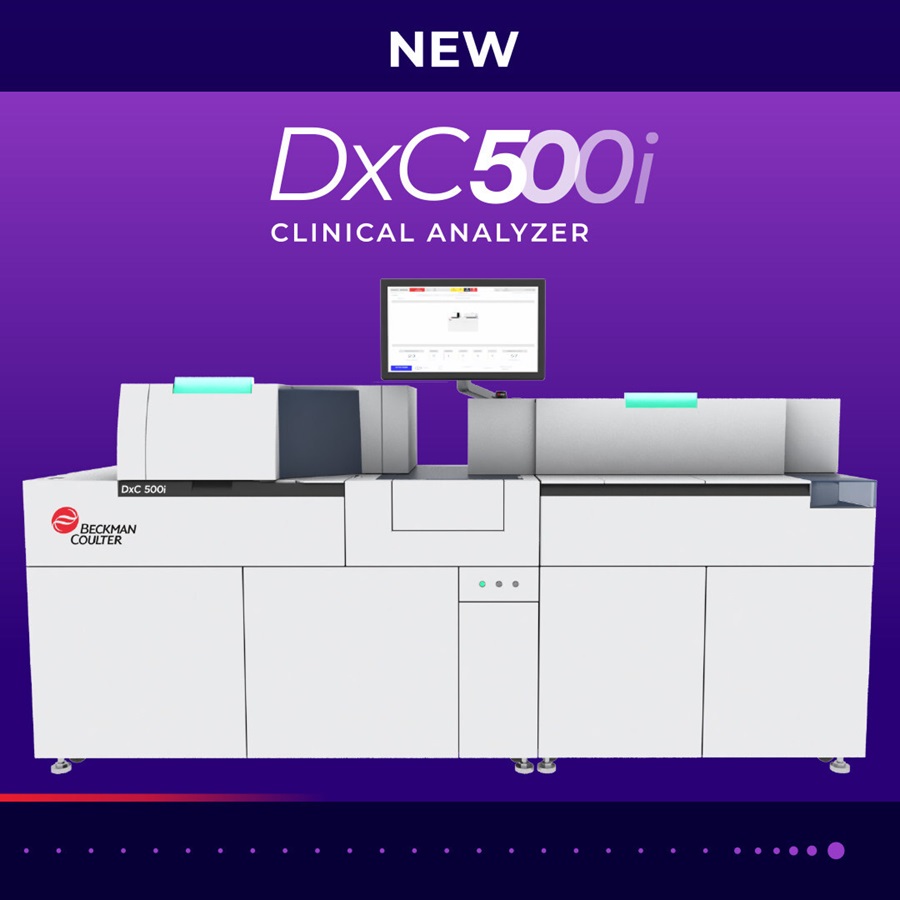
Integrated Chemistry and Immunoassay Analyzer with Extensive Assay Menu Offers Flexibility, Scalability and Data Commutability
As global healthcare systems increasingly shift towards networked laboratory operational models to enhance efficiency and patient access, there is a greater need for innovative solutions tailored to the... Read moreMolecular Diagnostics
view channel_1.jpeg)
Novel Blood Test Could Reveal Alzheimer’s Disease Biology and Risk for Progression
The inability to diagnose Alzheimer’s disease, the most prevalent form of dementia in the elderly, at an early stage of molecular pathology is considered a key reason why treatments fail in clinical trials.... Read more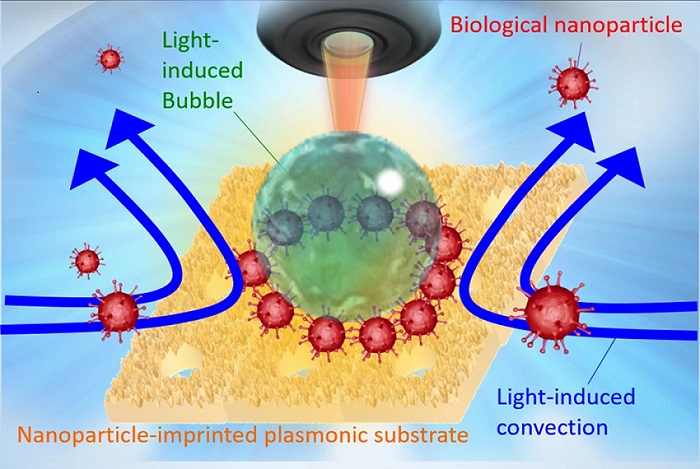
Light-Induced Immunoassay Selectively Detects Coronavirus Spike Proteins In 5 Minutes
Like moths drawn to a flame, microbes can also be influenced by light. Using this principle, researchers have developed a method to quickly detect viruses using only a small sample. Scientists at Osaka... Read more
Simple Blood Test Detects ALS with 98% Accuracy
Amyotrophic lateral sclerosis (ALS) is presently diagnosed via a neurologist’s clinical examination, but differentiating it from other neurological conditions requires tracking symptom progression, which... Read more.jpeg)
Blood Test Predicts Risk for Developing COPD and Other Severe Respiratory Diseases
Chronic respiratory diseases, such as chronic obstructive pulmonary disease (COPD), impact millions of adults worldwide and were the third leading cause of death in 2019. Major risk factors include smoking,... Read moreHematology
view channel
Newly Discovered Blood Group System to Help Identify and Treat Rare Patients
The AnWj blood group antigen, a surface marker discovered in 1972, has remained a mystery regarding its genetic origin—until now. The most common cause of being AnWj-negative is linked to hematological... Read more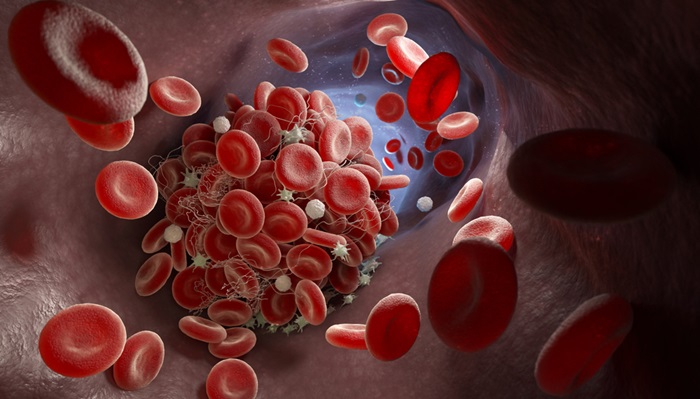
Blood Platelet Score Detects Previously Unmeasured Risk of Heart Attack and Stroke
Platelets, which are cell fragments circulating in the blood, play a critical role in clot formation to stop bleeding. However, in some individuals, platelets can become "hyperreactive," leading to excessive... Read moreImmunology
view channel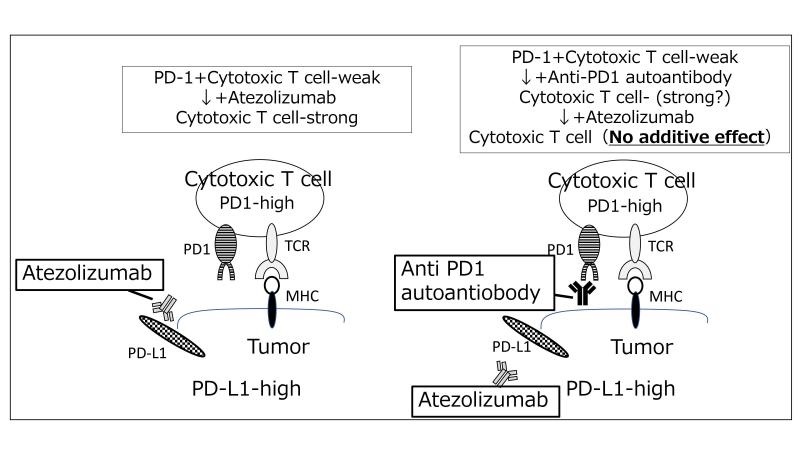
Blood Test Predicts Survival in Liver Cancer Patients
Hepatocellular carcinoma (HCC) is the most common form of liver cancer and ranks as the fourth leading cause of cancer-related deaths worldwide. For patients with advanced HCC, several systemic treatments... Read more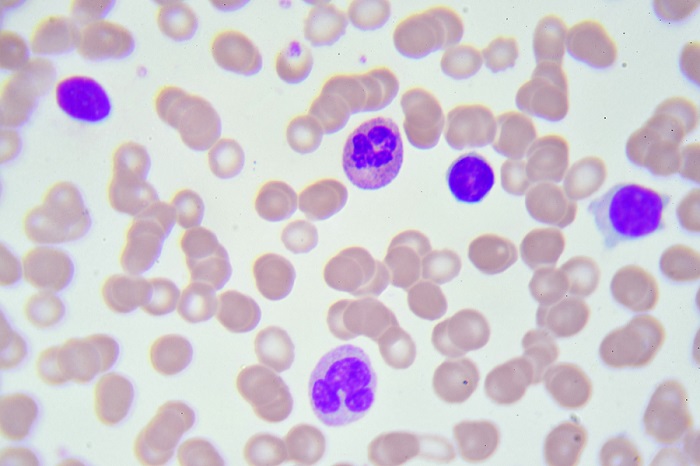
Simple Blood Test Identifies Multiple Myeloma Patients Likely to Benefit from CAR-T Immunotherapy
Multiple myeloma, a type of blood cancer originating from plasma cells in the bone marrow, sees almost all patients experiencing a relapse at some stage. This means that the cancer returns even after initially... Read more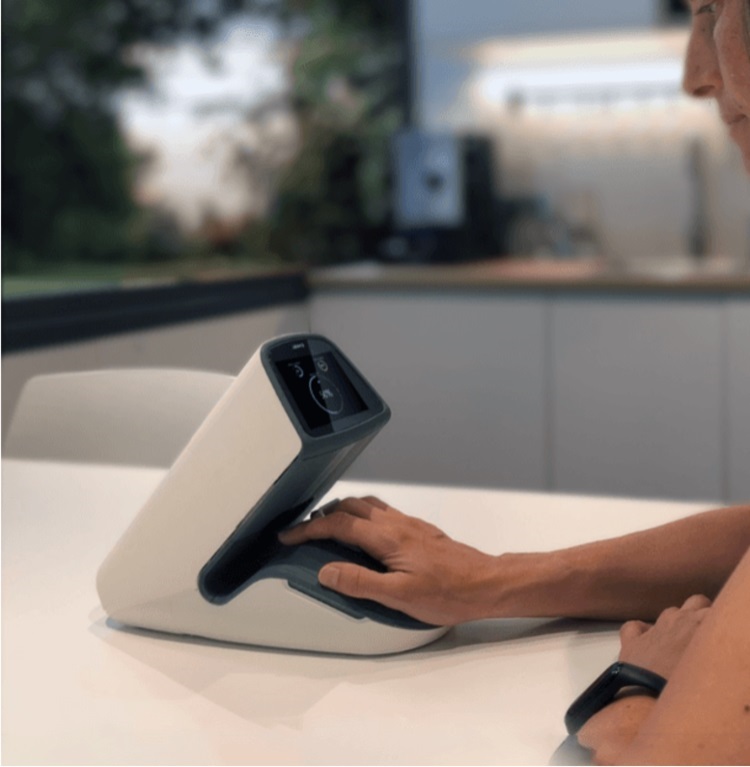
Portable Device Analyzes White Blood Cell Activity to Monitor Cancer Patients’ Health
Chemotherapy and similar treatments aimed at eliminating cancer cells often adversely affect patients' immune cells. Each year, this results in tens of thousands of cancer patients suffering from weakened... Read moreMicrobiology
view channel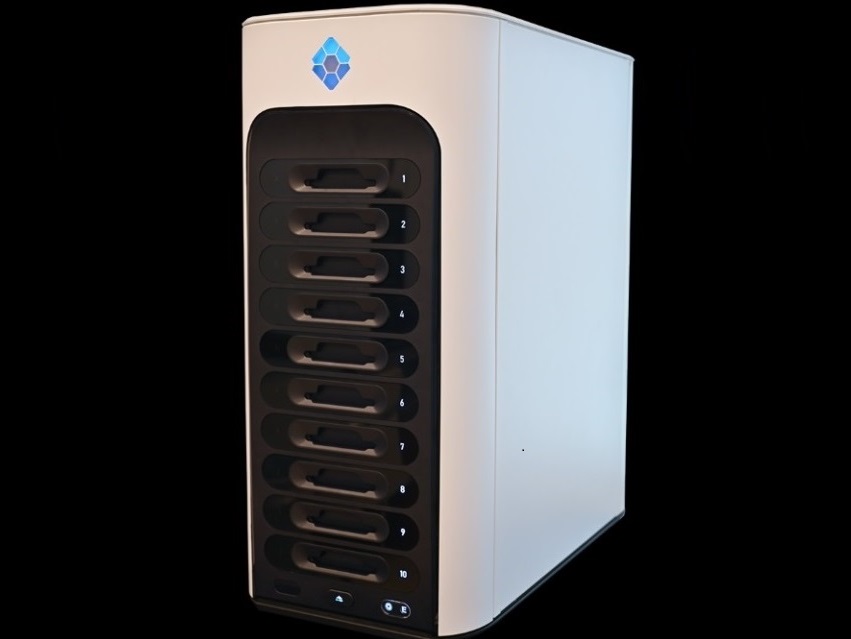
Rapid Diagnostic System to Deliver Same-Shift Antibiotic Susceptibility Test Results
The World Health Organization estimates that sepsis impacts around 49 million people worldwide each year, resulting in roughly 11 million deaths, with about 1.32 million of these deaths directly linked... Read more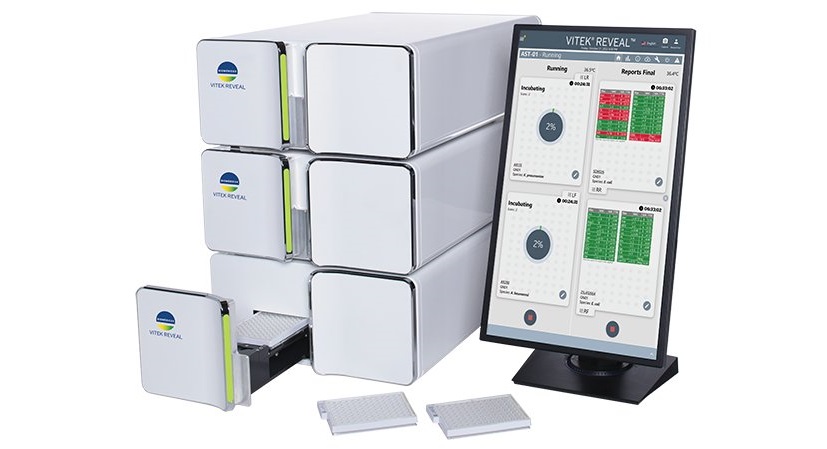
AST System Delivers Actionable Results for Gram-Negative Bacteria Directly from Positive Blood Cultures
Annually, sepsis claims the lives of 11 million people globally, with 1.3 million of these deaths linked to antibiotic-resistant bacteria. For clinicians, the ability to quickly and accurately interpret... Read more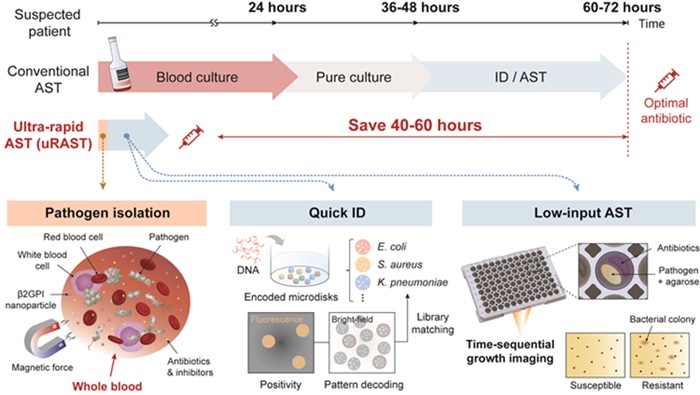
Ultra-Rapid Culture-Free Sepsis Test Reduces Testing Time from Days to Hours
Sepsis, a critical emergency condition, results from an overactive inflammatory response to pathogens like bacteria or fungi in the blood, leading to organ damage and the possibility of sudden death.... Read more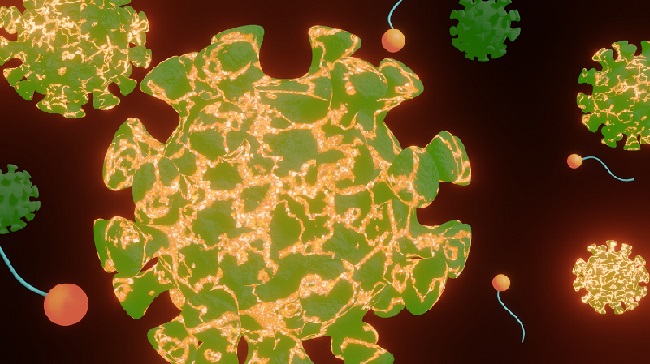
New Rapid Method for Determining Virus Infectivity Could Revolutionize Response to Future Pandemics
On average, every four years a new virus emerges that poses a pandemic threat, in addition to numerous already known viruses that have the potential to jump across species. Currently, there is no test... Read morePathology
view channelAI-Based Tissue Staining Detects Amyloid Deposits Without Chemical Stains or Polarization Microscopy
Systemic amyloidosis, a disorder characterized by the buildup of misfolded proteins in organs and tissues, presents significant diagnostic difficulties. The condition affects millions of people each year,... Read more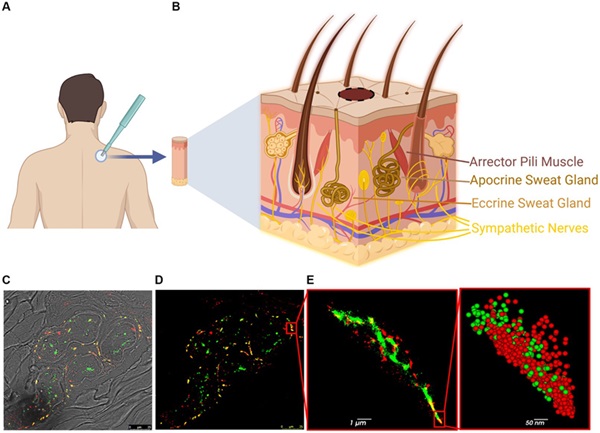
Super-Resolution Imaging Detects Parkinson's 20 Years Before First Motor Symptoms Appear
Parkinson's disease is the second most common neurodegenerative disorder globally, affecting approximately 8.5 million people today. This debilitating condition is characterized by the destruction of ... Read more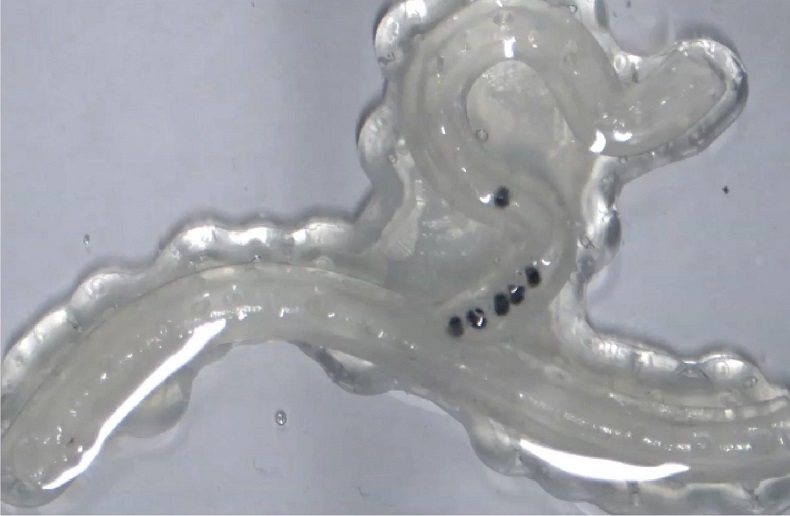
New Technology for Sampling Body Liquids in Confined Spaces to Enable Early Cancer Detection
Body fluids—such as blood, pancreatic juice, urine, and mucus—contain valuable information about chemical composition, biomarkers, bacterial colonies, and other key components. This information aids researchers... Read moreTechnology
view channel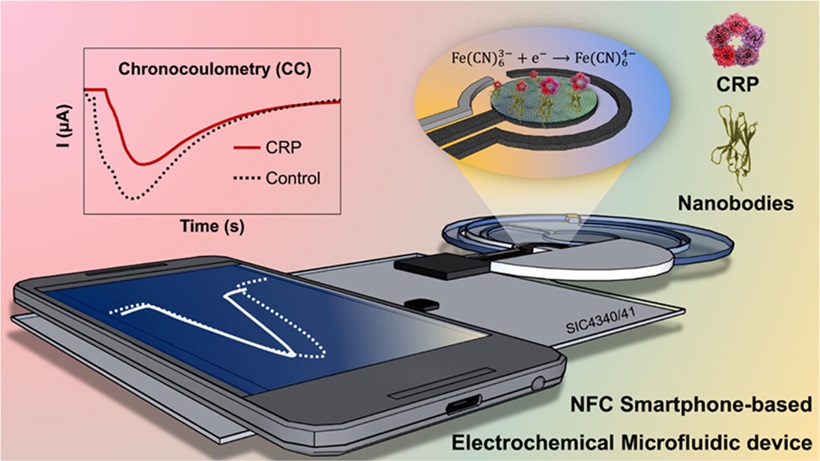
POCT Device Monitors C-Reactive Protein Levels Associated with Inflammation in Real Time
Inflammation, a natural immune response, increases blood flow and improves cellular defense against diseases and infections. Rapid detection of inflammation is critical for effective treatment, creating... Read more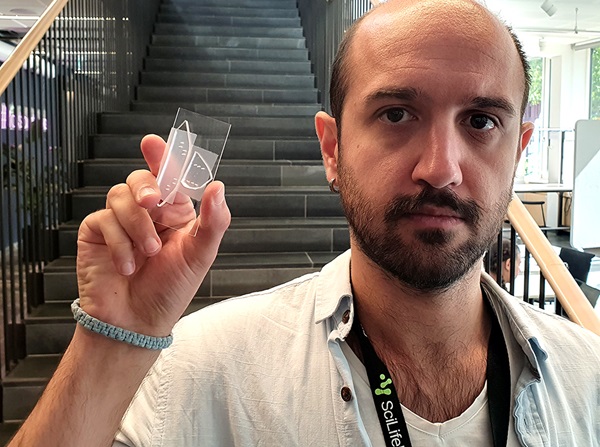
New Microfluidics Method to Speed Up Blood Analyses
Researchers have developed a new method to accelerate and potentially scale up the process of separating particles in fluids, a technique that could prove useful for analyzing cancer cells from blood.... Read moreIndustry
view channel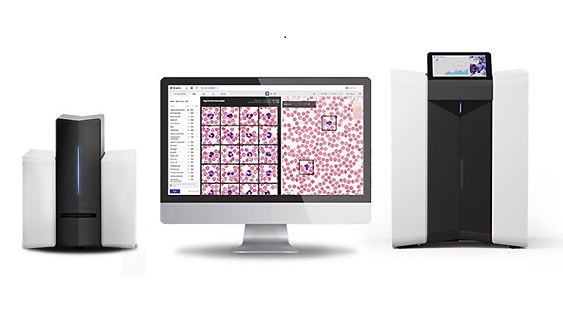
Beckman Coulter and Scopio Labs Add World's First Digital Bone Marrow Imaging and Analysis to Long-Term Partnership
Since 2022, Beckman Coulter (Brea, CA, USA) and Scopio Labs (Tel Aviv, Israel) have been working together to accelerate adoption of the next generation of digital cell morphology. Scopio's X100 and X100HT... Read more
Roche Expands Digital Pathology Open Environment with Integration of Advanced AI Algorithms from New Collaborators
Roche (Basel, Switzerland) has expanded its digital pathology open environment by integrating over 20 advanced artificial intelligence (AI) algorithms from eight new collaborators. These strategic collaborations... Read more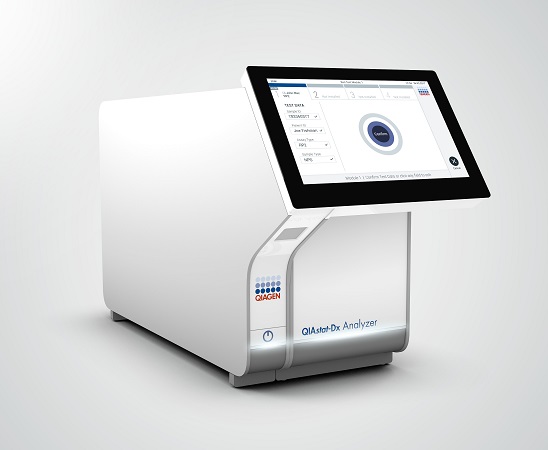











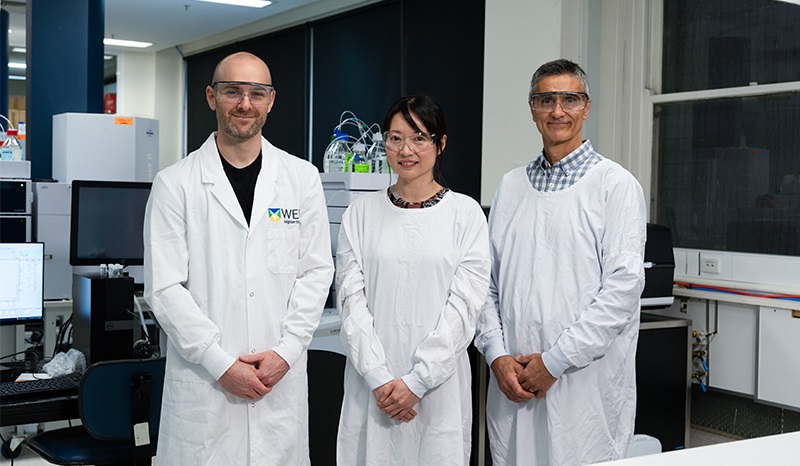
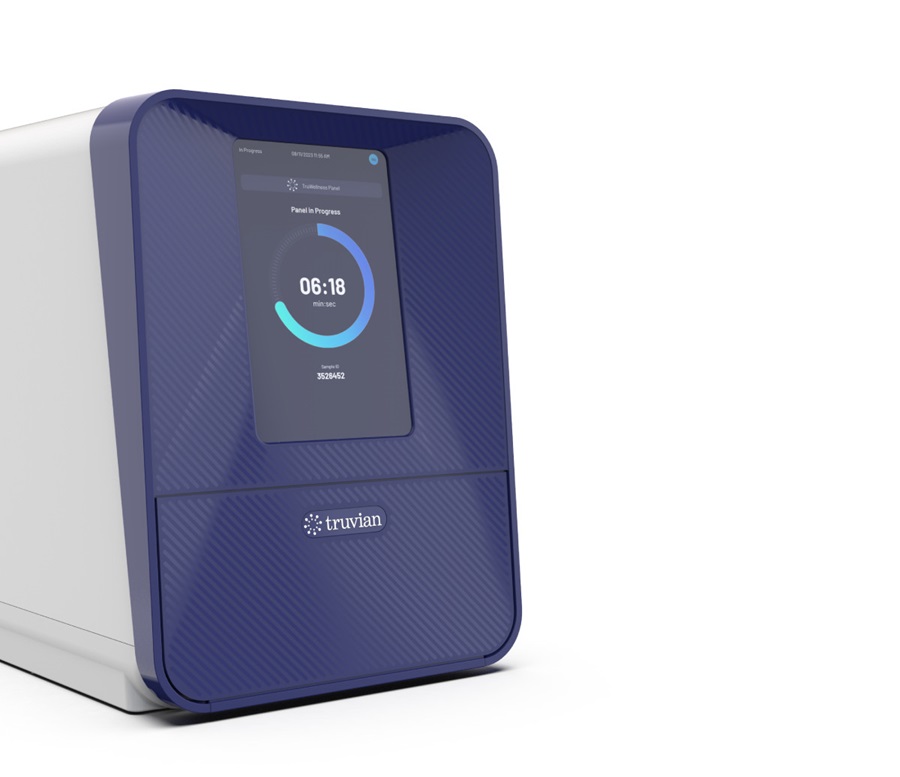

.jpeg)
